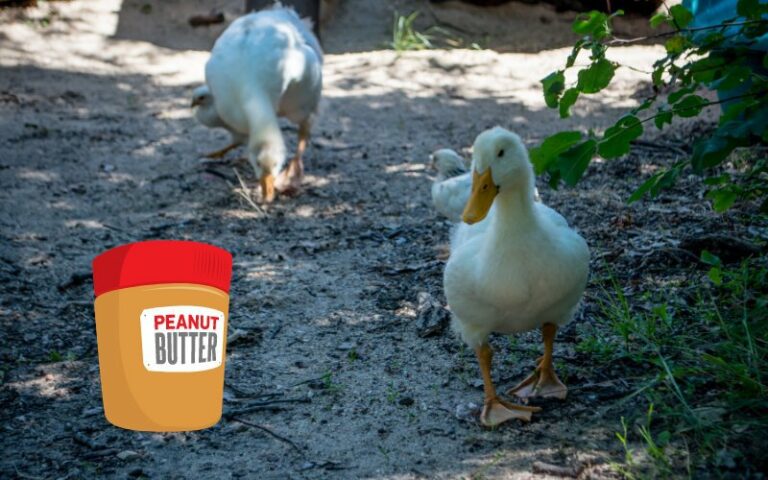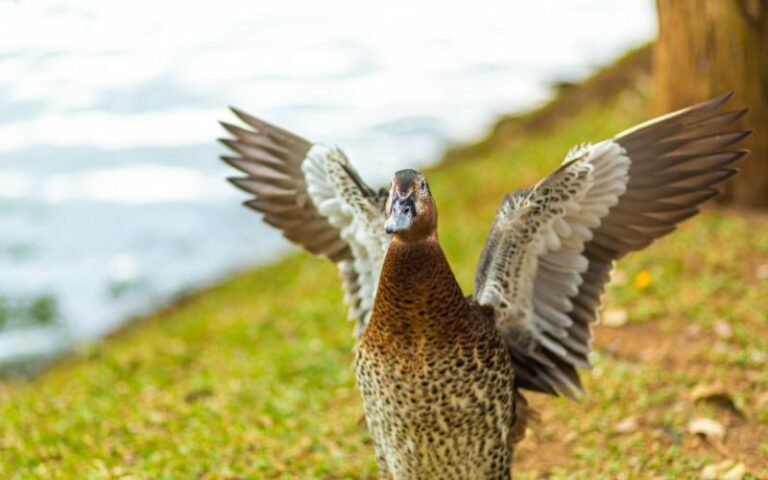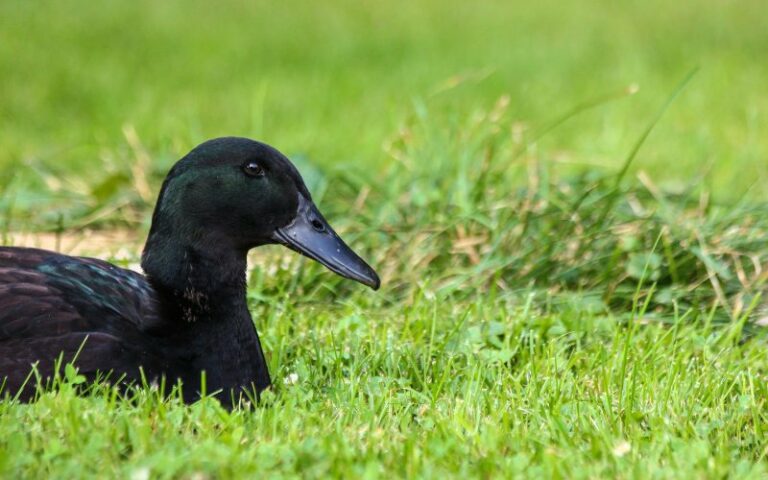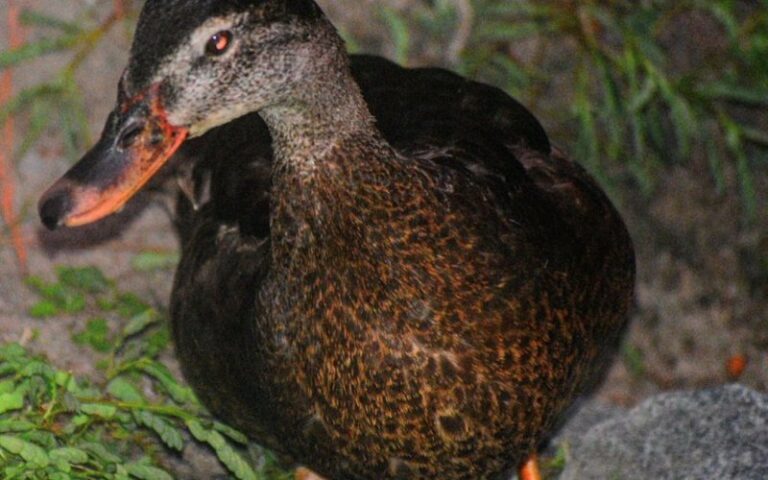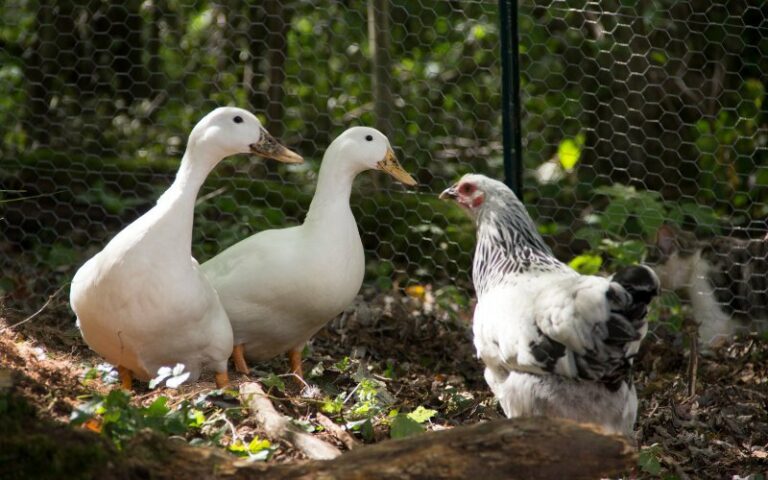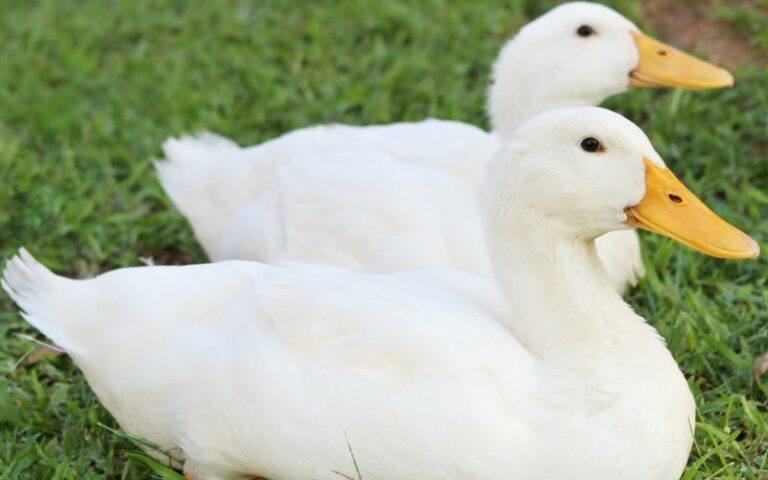Do Ducks Eat Grass? (+ Should They)
Ducks are charming creatures to watch, especially on a nice, sunny day. As they waddle around and look for things to eat, you may notice them nibbling on the grass. Occasionally they will snap off these blades of grass but, on closer inspection, sometimes they may not. Are they getting anything from the grass when they nibble but don’t seem to consume any? Can ducks eat grass regularly?
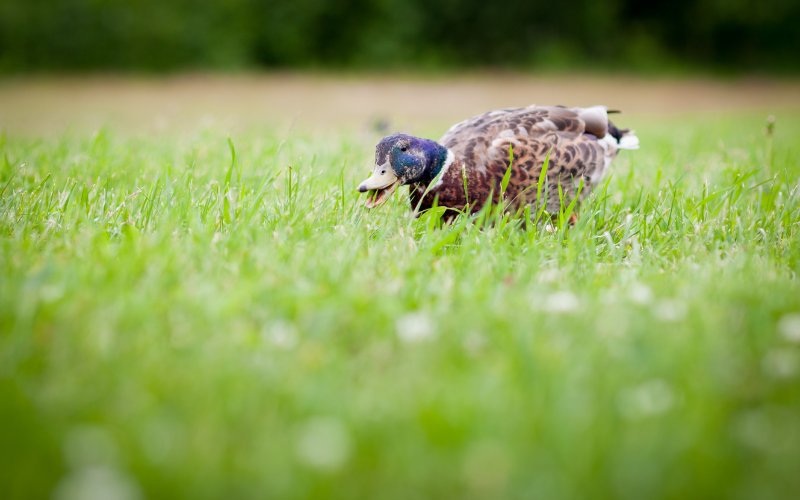
So … Do Ducks Eat Grass? (The Short Answer)
Yes, ducks can and should eat grass as often as possible. Keeping greens, like grass, in the diet can help support egg-laying, especially if you can manage to supply these greens in the winter when less green is naturally growing outdoors. However, sometimes when a duck appears to be eating grass, it may be doing something else.
The Nutritional Value of Grass for Ducks
Grass provides a little something in every nutritional category, though how much will vary widely depending on the species of grass, how tall it is, and what the soil contains. On average, healthy grass is about 35% fiber and 16% protein with trace minerals and nutrients including calcium, magnesium, zinc, selenium, folic acid, Vitamin A, and manganese. Grass, like most green plant life, is also a good source of hydration.
Of these nutrients, folic acid, calcium, and Vitamin A are exceptionally important for laying ducks. These three nutrients, when fed in sufficient quantity, result in eggs with thicker shells and large orange yolks, typical of duck eggs.
No matter how much forage your ducks get, however, it’s important that they have other sources for mineral supplementation. The calcium, manganese, and magnesium found in most plants are insufficient.
How Can Eating Grass Benefit Your Duck?
Though nutrition is the chief benefit of eating grass for a duck, it’s not the only one.
Nutrition
As discussed above, grass is an excellent source of nutrition for all ducks and can provide nearly all of the nutrition needed for non-laying ducks. However, ducks raised only on pasture will be on the lean side. It’s important to supplement with something that has a higher caloric value where and when possible to have healthy, resilient birds.
Hydration
Do ducks eat grass for hydration? Yep. Ducks know that if they’re thirsty, plantlife contains quite a bit of water. For example, under normal conditions, grass is about 70% to 85% water.
Mental Stimulation and Boredom Reduction
Grass can have more value beyond just nutrition. Digging through grass, be it growing outdoors or part of a pile of forage introduced to the coop or pen in adverse weather, can help stave off boredom and reduce stress. Ducks have a strong desire to forage and grass is a great, cost-effective, and healthy way to satisfy this desire.
More Than Just Grass
As I mentioned above, sometimes ducks like to forage and will even nibble on blades of grass without taking a bite. Often when they are doing this they are doing 1 of 3 things. They could be drinking the dew off of the blade of grass if it’s early in the morning. They could be cleaning weed seeds off of the grass. Or they could be eating small insects and bugs like aphids, ants, or spiders.
Can a Duck Eat Too Much Grass?
How much grass causes harm to ducks? A duck should not be eating so much grass that it causes harm. If a duck is gorging itself nonstop on grass without taking any time to rest it’s likely that the duck in question is sick or has eaten something else that it is trying to get out of its system. When ducks do graze in a healthy way, they should take a break every few hours at the very least.
Grass in and of itself, even when making up half or more of a duck’s diet, should never cause a health issue. However, several types of weeds and other plants can be problematic for the health of your flock and may be mixed into the grass. Make sure that their pen, enclosure, or pasture is free from:
- Acorns (While not a problem for wild ducks, domestic ducks can gorge themselves on acorns to the point of liver damage.)
- Buttercups
- Castor Bean
- Clematis
- Honeysuckle
- Larkspur
- Lily
- Milkweed
- Mountain Laurel
- Oleander
- Pennyroyal
- Pokeweed
- Poppy
- Rhubarb (True and False Rhubarb)
- Vetch
- Wisteria
- Yew

